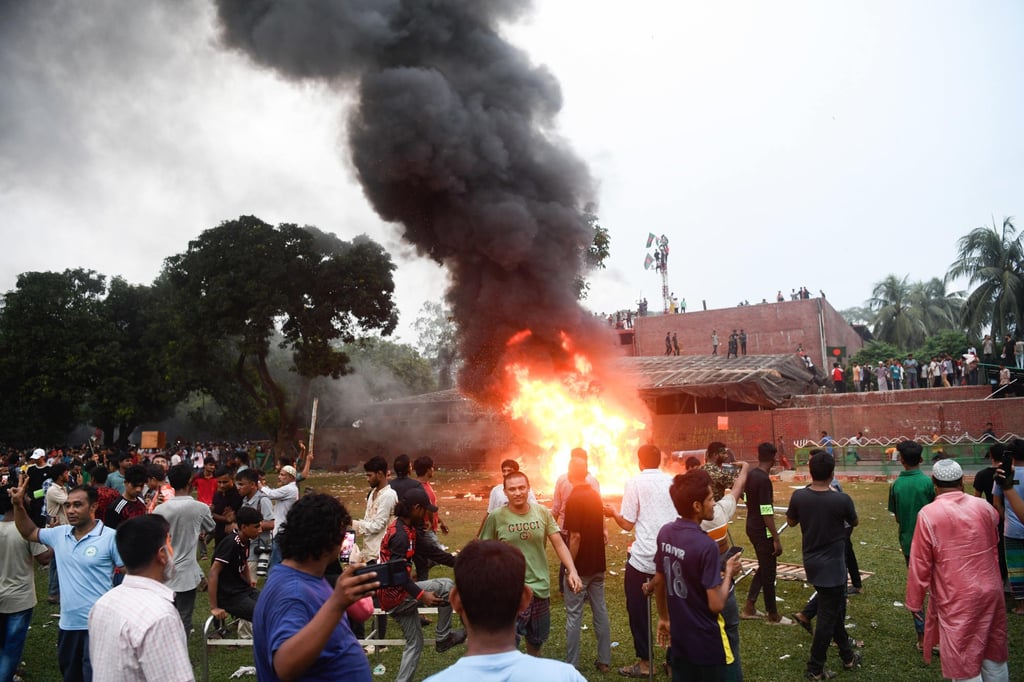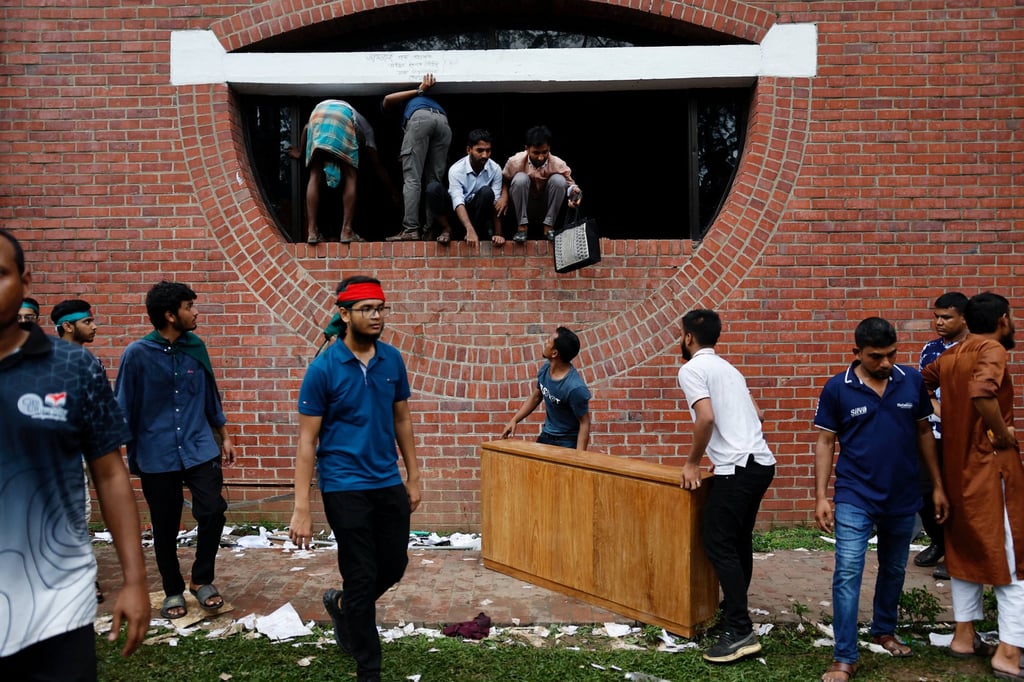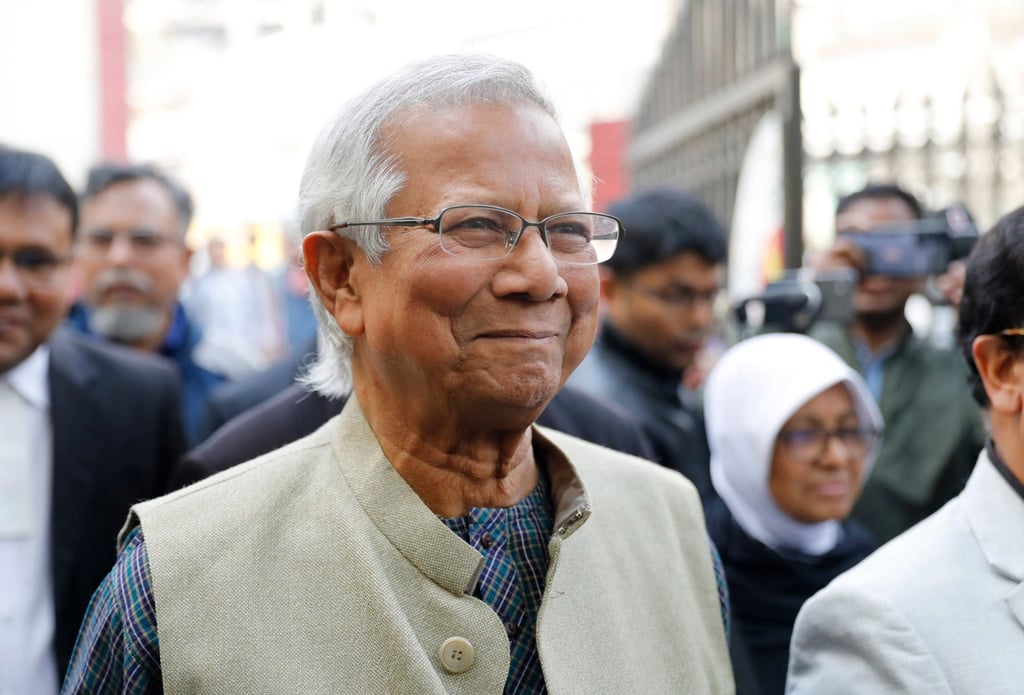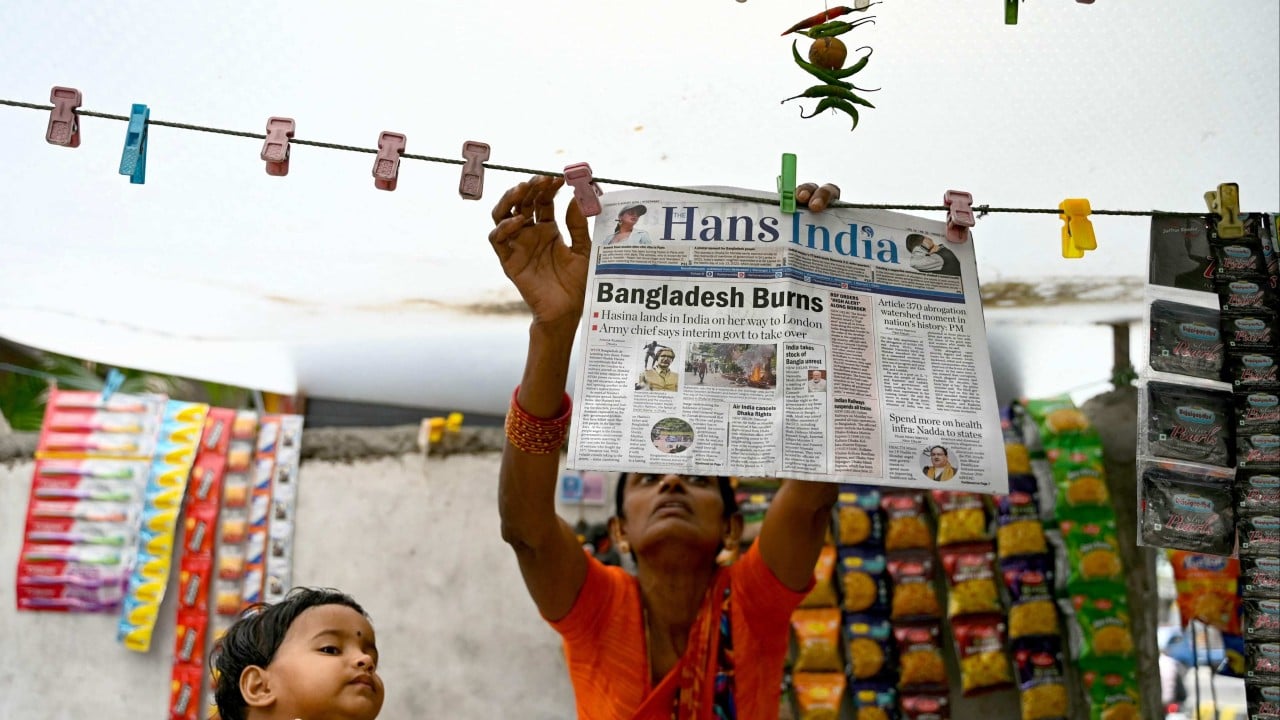The spectacular downfall of Sheikh Hasina after 15 years helming Bangladesh followed weeks of student protests which saw hundreds killed and chaos rip across the country.
What started as a call for an end to a job quota system snowballed into a mass movement driven by young men and women demanding the 76-year-old leave office.
Then on Monday afternoon, the once unthinkable happened, as one of Asia’s longest-ruling leaders fled by helicopter, her abrupt exit stunning her supporters and critics alike.
Euphoric protesters ransacked her residence and parliament building. But overnight jubilation spiralled into retribution, with reports of widespread looting and more deadly mob violence, some of it targeted at Hasina’s Awami League supporters.
A day after the end of Hasina’s chokehold over Bangladesh, hard questions are now being asked over who will lead the interim government the army has said it wants to see established. Additionally, there is anxiety over whether unrest that is still rattling across a country suddenly freed from its once unassailable ruler can be swiftly and peacefully quelled.
Here is an explainer of what may come next:

Army and elections
Uncertain days lie ahead for Bangladesh.
Army chief General Waker-Uz-Zaman assumed control on Monday afternoon, vowing to swiftly help install an interim government. He called on the student-led protesters to go home, promising justice for the bloodshed over the recent weeks of political violence. Overnight, President Mohammed Shahabuddin promised elections would be held as soon as possible and ordered the release of jailed protesters as well as ex-prime minister, opposition figurehead and Hasina’s nemesis: Khaleda Zia.
Talks were due on Tuesday between the army chief and the students over the shape of what is to come – with the role of an army whose coups and attempted coups have pockmarked Bangladesh’s short history since it came into being in 1971.
“The students clearly say they don’t want any military-backed government,” Dr Mubashar Hasan, a human rights defender and researcher at the University of Oslo, told This Week in Asia. “It will be difficult for the military to hold power on the back of a movement of this scale.”
How Bangladesh’s youth – whose spilled blood and defiant protests shattered an authoritarian regime which seemed unbreakable just months ago as Hasina swept uncontested elections – will be included in the political settlement to follow is yet to be ascertained.
Yet student leaders are on the front foot, insisting early on Tuesday that they want a new interim government with Nobel Peace Prize laureate Muhammad Yunus as its chief adviser.
“Any government other than the one we recommended would not be accepted,” Nahid Islam, one of the key organisers of the student movement, said in a video on Facebook with three other organisers. “We wouldn’t accept any army-supported or army-led government.”
Islam also said they have already spoken to Yunus about his possible role in leading the country.
Reports say Yunus is currently in Paris, and will return “immediately” to Bangladesh after undergoing a minor medical procedure, according to the Nobel laureate’s spokesperson.

Violence, justice, retribution?
Weeks of bloodshed have left hundreds dead, with student protesters alleging summary killings by security forces acting on Hasina’s behalf – and reports of mob killings between pro and anti-government supporters across the country.
A wave of looting overnight saw more than 100 more deaths, as well as arson attacks on buildings linked to Hasina’s Awami League, prompting calls for calm from the international community. The United States called for all sides to “refrain from violence”.
“Too many lives have been lost over the course of the past several weeks, and we urge calm and restraint in the days ahead,” said State Department spokesman Matthew Miller.
Experts warn prolonged political violence could usurp the positive momentum of the student-led protests for real change.
But there were also early signs of the students seeking to get to grips with the situation by protecting sites belonging to religious minorities from mobs.
The student movement is also calling for justice for the recent bloody crackdown by state forces as well as harassment of dissidents, arbitrary jailings, beatings, extra judicial killings and other human rights abuses which mounted over Hasina’s time in office. But that may prove convoluted in a country where Hasina’s Awami League allies and appointees stack the army, police, judiciary and civil service, and managing expectations of movement which has claimed freedom may be integral to stability going forward.
Tarique Rahman, son of two-time prime minister Khaleda Zia and acting leader of the opposition-in-exile Bangladesh Nationalist Party, also called for “restraint and calm in the midst of this transition moment in our democratic path”.
In a post on X on Tuesday, he urged patience and those seeking justice to seek “legal and legitimate steps” against those who have wronged them.

Who is Dr Yunus?
The garlanded microfinance pioneer Dr Muhammad Yunus has emerged as a potential key figure in stewarding the country towards new elections.
The 84-year-old was convicted under Hasina’s watch of violating labour laws, in what his supporters say was a nakedly political attack on the popular Nobel Peace Prize winner, dubbed “the banker to the poor” for his small loans through the Grameen Bank he founded. The students who toppled Hasina say they want Yunus to broker the uncertain next period before elections.
“Dr Yunus has wide acceptability in Bangladesh, but we will need to wait and see how this plays out,” Hasan of the University of Oslo said. “There will be some reluctance in military ranks, as many people were appointed by Sheikh Hasina.”
Yunus told Indian broadcaster Times Now in a recorded interview that on Monday marked the “second liberation day” for Bangladesh after its 1971 war of independence from Pakistan.
But he said Bangladeshis were angry with neighbour India for allowing Hasina to land there after fleeing Dhaka.
“India is our best friend … people are angry at India because you are supporting the person who destroyed our lives,” Yunus said.
Speculation is mounting that Hasina will ultimately seek sanctuary in the United Kingdom.
Additional reporting by Reuters, Associated Press


